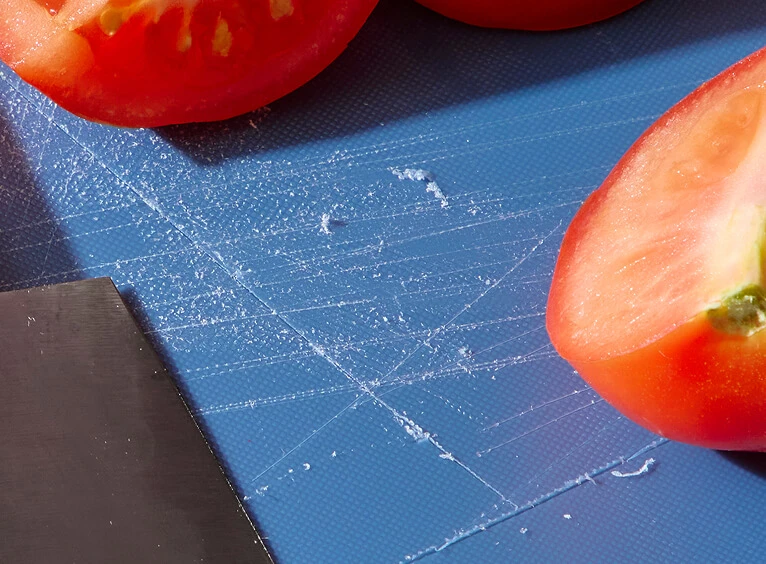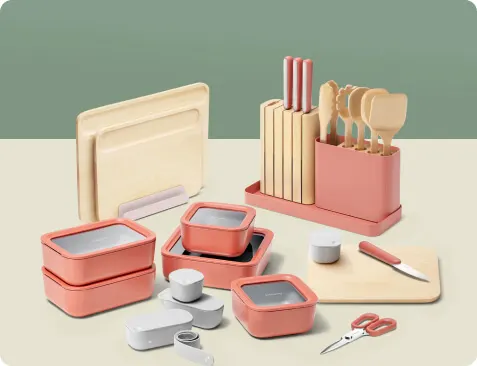Almost there! You're $90.00 away from free shipping
Your Cart is Empty
Get started with the Caraway essentials!
Free Shipping On Orders $90+
Free Returns
30-Day Trial
Home & Kitchen with Caraway

At Caraway , we’re all about cooking with clean, non-toxic tools that make your life easier—not ones that quietly add plastic particles to your food. And yet, that’s exactly what a lot of cutting boards do. If you’ve been using a plastic cutting board, thinking it’s the safest, most convenient choice, it might be time for a switch.
Here’s what you need to know.
Plastic cutting boards might seem harmless, but they come with a few hidden downsides. Over time, they break down, wear out, and can introduce things into your meals that you’d never intentionally sprinkle on your food.
Every time you slice, chop, or dice on a plastic board, you’re not just cutting your ingredients—you’re also creating tiny plastic particles. These microplastics don’t just disappear. They can get into your food, into your body, and, well, they don’t exactly belong there.
Scientists are still figuring out exactly what long-term exposure to microplastics does to us, but the general consensus? Less plastic in your diet is better.
It gets worse. Many plastic boards contain chemicals like BPA and phthalates—ingredients you wouldn’t willingly eat but might be consuming anyway. When plastic boards get scratched up, heated, or used over time, these chemicals can leach into your food.
Even “BPA-free” plastic isn’t necessarily safe; manufacturers often swap one chemical for another that hasn’t been fully studied yet.
Plastic cutting boards also love to hold onto bacteria. Once they get those deep knife grooves, it’s nearly impossible to clean them completely.
Bacteria from raw meat, seafood, or even just day-old vegetable scraps can linger in those cracks and make their way into your next meal. You could sanitize your plastic cutting board constantly, but even that won’t undo the fact that it’s holding onto germs in a way that other materials don’t.
Yes. And not just because they look better in your kitchen. Wooden cutting boards have a natural advantage over plastic when it comes to food safety.
Unlike plastic, wood doesn’t just trap bacteria and keep it hanging around. It absorbs moisture, pulling bacteria into its surface where it dries out and dies. Plus, wood doesn’t shed tiny particles into your food, and it doesn’t come with a side of mystery chemicals.
That’s exactly why we designed the Caraway Cutting Board Set —a 4-piece collection made from FSC-certified birch wood. It’s finished with food-safe mineral oil and wax, so you get a naturally smooth surface without hidden toxins. No plastic. No BPA. No weird chemicals making their way into your ingredients. Just high-quality wood designed for every slice, chop, and dice.

If you’re serious about clean cooking, ditching plastic cutting boards is a no-brainer. Microplastics, bacteria traps, and chemical exposure? No thanks. That’s why we stick with naturally non-toxic materials like FSC-certified birch wood—better for you, better for your food, and built to last.
Sources:
Microplastics in Food: A Review on Analytical Methods and Challenges | PMC
Almost there! You're $90.00 away from free shipping
Get started with the Caraway essentials!
Free Shipping On Orders $90+
Free Returns
30-Day Trial